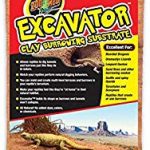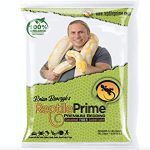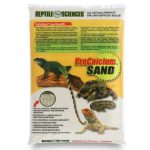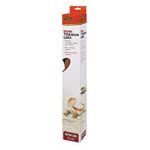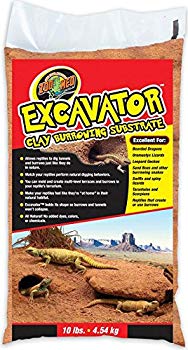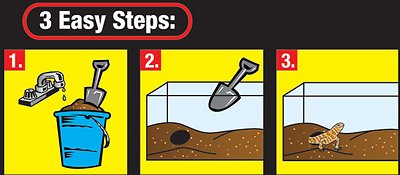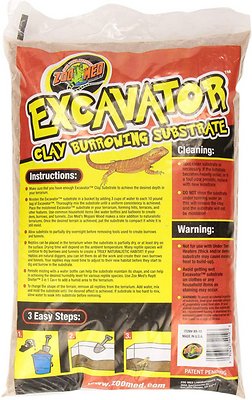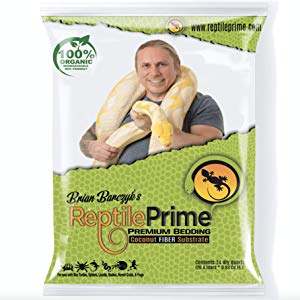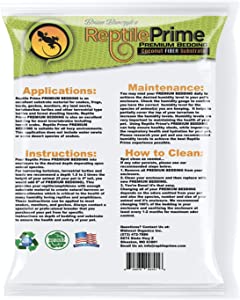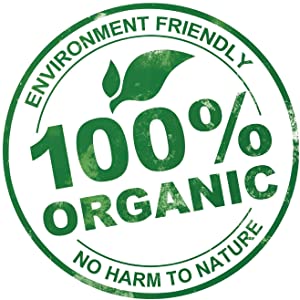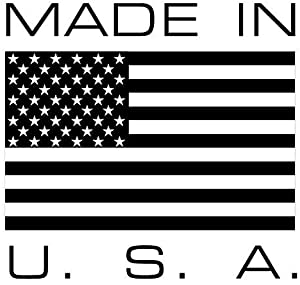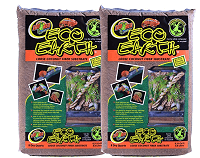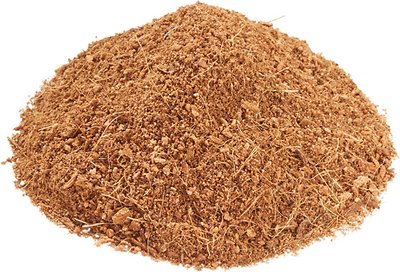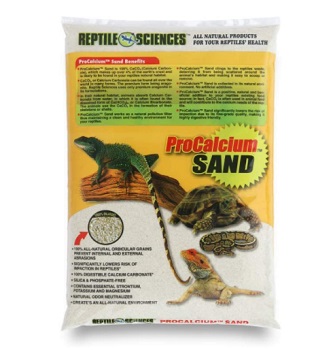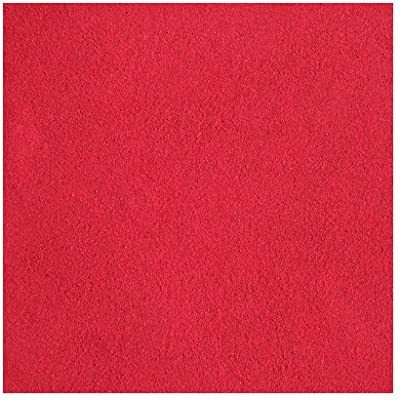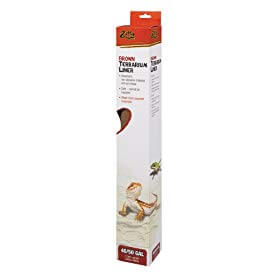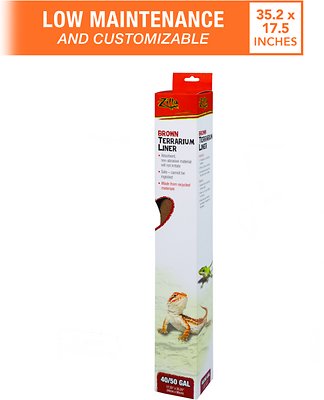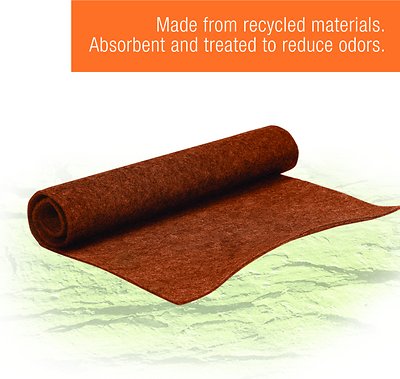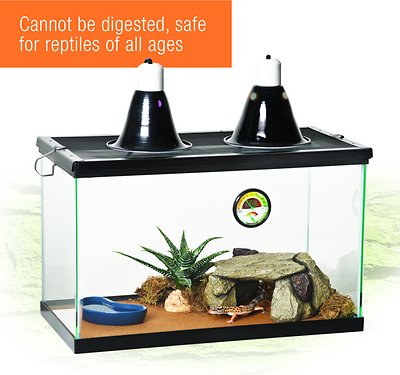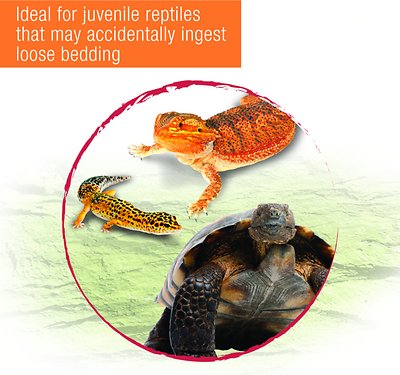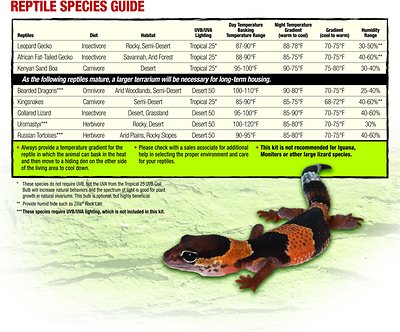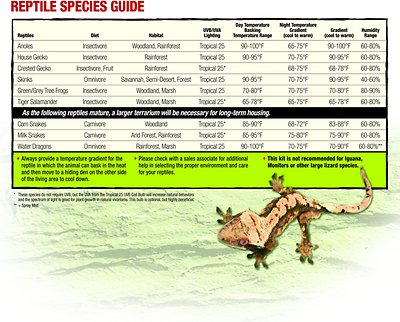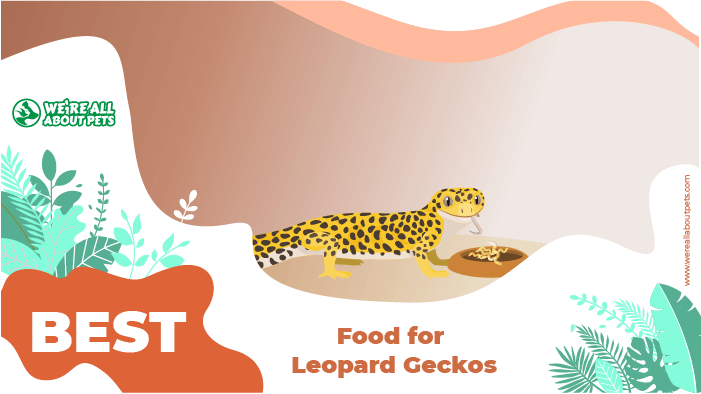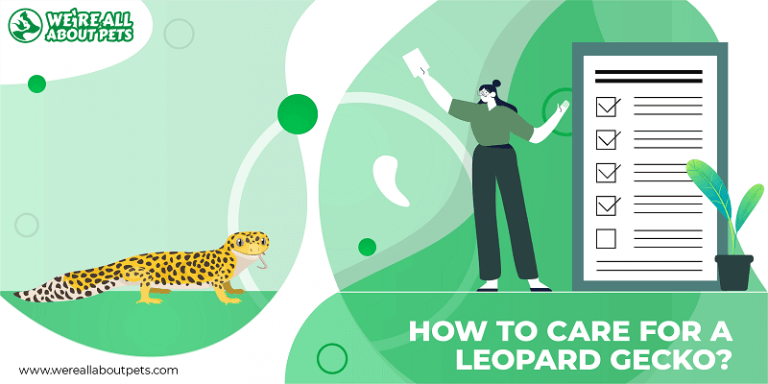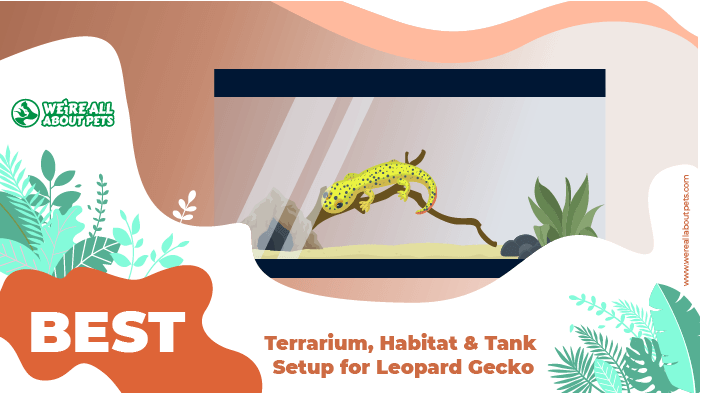The 5 Best Substrates For Leopard Geckos
This page contains affiliate links. We may earn money or products from the companies mentioned in this post through our independently chosen links, which earn us a commission. Learn More
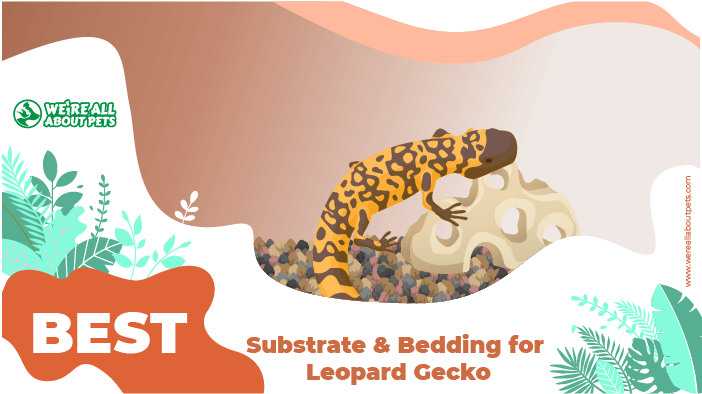
Leopard geckos make wonderful pets because they are docile, relatively easy to care for, and they don’t get too big. Though a leopard gecko may not require anything complicated in terms of its habitat, there are certain boxes you need to check if you want to mimic your pet’s natural habitat.
In addition to choosing an appropriately sized terrarium, you should also make sure it is lined with the right type of substrate. Substrate helps absorb waste to keep your tank clean and hygienic.
In this article, we’ll talk about decorating your leopard gecko tank and provide some tips for choosing the best leopard gecko substrate and bedding. You’ll also see our top 5 picks for the best leopard gecko substrate and bedding.
Quick Navigation
At A Glance: Best Substrates and Beddings for Leopard Geckos To Buy
We highly recommend looking at the comparison table we have below where we highlighted the features of each product. You’ll also find more detailed information about each product later in the article.
Compare Best Substrates and Beddings for Leopard Geckos
|
Best Affordable
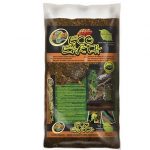
3. Zoo Med Eco Earth Loose Coconut Fiber Reptile Substrate |
||||
|
Materials
Clay |
Materials
Coconut fiber |
Materials
Coconut fiber |
Materials
Sand |
Materials
Recycled materials |
|
Capacity
10 pounds |
Capacity
24 dry quarts |
Capacity
8 quarts |
Capacity
10 pounds |
Capacity
50-gallon |
|
Key Features
Holds shape, fine texture |
Key Features
Absorbent, natural |
Key Features
Retains humidity, natural |
Key Features
Digestible, all-natural |
Key Features
Low maintenance, easy to clean |
What To Look For In Substrate And Bedding For Leopard Geckos
When it comes to choosing the substrate for your leopard gecko tank, you have many options. Some gecko owners keep it simple by using paper towels or newspaper, but neither of these options allow your gecko express natural behaviors. At the same time, you don’t want to choose something that’s going to create a risk of impaction or injury. Read on to see our recommendations for leopard gecko bedding.
Here are some important things to look for in leopard gecko substrate:
- All-natural, non-toxic. You never want to put anything in your gecko’s tank that could potentially harm your pet, so choose a bedding that is all-natural and non-toxic.
- Easy to clean. Half the point of using substrate or bedding in your leopard gecko tank is to keep it clean. Make sure the bedding you choose is easy to spot-clean and either replace or disinfect.
- Low risk of ingestion. When your leopard gecko eats insects, there is always a risk that it might ingest some substrate along with the food. Make sure the substrate you choose won’t harm your gecko or cause an intestinal obstruction.
- Low level of dust. Leopard geckos have sensitive eyes and many loose substrates can cause problems for their eyes.
Our Top Picks For The Best Substrates and Beddings For Leopard Geckos
Now that you have a better idea what to look for in a leopard gecko substrate, it’s time to start shopping! Keep reading to see our top 5 picks for the best leopard gecko beddings and substrates.
Zoo Med Excavator Clay Burrowing Reptile Substrate
Product Info
- Materials: Clay
- Capacity: 10 pounds
- Key Features: Holds shape, fine texture
- Enables natural burrowing behavior
- Holds its shape well, can make tunnels and crevasses mimicking their natural environment.
- All-natural clay materials, no chemicals or dyes
- Requires occasional misting to maintain texture
- Some risk for accidental ingestion and impaction if it cracks
The substrate holds it shape as well, so you can build tunnels and the fine texture won’t injure your gecko’s toes or feet. Plus, it comes in a large 10-pound bag which is plenty for most small terrariums.
Reptile Prime Coconut Fiber Bedding Substrate For reptiles
Product Info
- Materials: Coconut fiber
- Capacity: 24 dry quarts
- Key Features: Absorbent, natural
- All-natural, non-toxic coconut fiber material
- Enables natural burrowing behavior
- Helps retain moisture and humidity in tank
- Some risk for accidental ingestion, non-toxic
- May retain more moisture than necessary
This substrate is made from all-natural coconut fiber which is gentle on your gecko’s feet and helps retain both heat and humidity. Plus, it is highly affordable and easy to use.
Zoo Med Eco Earth Loose Coconut Fiber Reptile Substrate
Product Info
- Materials: Coconut fiber
- Capacity: 8 quarts
- Key Features: Natural, absorbent, odor control
- Can be used dry or wet, tropical or desert
- Naturally absorbent, breaks down waste
- Safe and gentle on gecko feet and toes
- May retain more moisture than needed
- Somewhat more expensive than other options
Reptile Sciences Terrarium Sand
Product Info
- Materials: Sand
- Capacity: 10 pounds
- Key Features: Digestible, all-natural
- Made from 100% all-natural materials
- Digestible, not dangerous for ingestion
- Contains natural odor neutralizers
- Somewhat heavier for burrowing than coconut fiber
- Some risk of ingestion, low risk for impaction
Zilla Terrarium Liner
Product Info
- Materials: Recycled materials
- Capacity: 50-gallon
- Key Features: Low maintenance, easy to clean
- No accidental ingestion is likely
- Absorbent and non-abrasive material, very easy to clean
- Resists the growth of bacteria and mold.
- Doesn’t allow for a naturalistic habitat
- Doesn’t retain heat and humidity as well as some
Plus, it is treated with a biodegradable enzyme to reduce odor and you can clean it quite easily using cold tap water. It is also very affordable, so you could purchase 2 and just swap them out when cleaning is needed.
Tips for Setting Up a Leopard Gecko Habitat
Leopard geckos are nocturnal reptiles, so you’ll need to keep that in mind when setting up the tank. You should expect your gecko to spend most of the day hiding, coming out only at night to feed. Think about additional factors such as heating, humidity, and lighting when decorating your gecko habitat.
Here are some simple tips for setting up your leopard gecko cage:
- Choose a terrarium at least 10 gallons in size, but ideally 20 gallons. Leopard geckos should be housed alone.
- Make sure your leopard gecko terrarium is well-ventilated – these are desert animals, not tropical, so they don’t have the same high humidity requirements of some reptiles. However, also make sure that the temperature is stable. Too much of a draft can make the cage too cool.
- Install an under-tank heater under your gecko terrarium – it will heat the substrate and help maintain the proper ambient temperature in the tank.
- Choose the proper lighting for your gecko tank – you’ll want low-wattage daylight and recent studies have shown that they will benefit from a low-level UV light. They usually don’t require any night lights in the average home.
- Provide your gecko with a hiding spot or two, placing one on the hotter end of the tank where your gecko can rest during the day – geckos do not bask.
- Provide at least one humid hide to make sure they have an area to keep their skin moist so they can shed properly.
Now that you have a better idea how to set up and decorate your leopard gecko terrarium, you can see the important role bedding and substrate play. Take what you’ve learned here and put it to use in choosing the best substrate for your leopard gecko tank.
Final Remarks
Leopard geckos are unique and interesting pets, but they are not necessarily beginner friendly. Any pet you choose to keep has specific requirements for care, so be sure to do your research. With the proper research, a suitable habitat, and a healthy diet, you should have no trouble keeping your leopard gecko happy and healthy for years to come.
If you’re still not sure where to start in looking for leopard gecko substrate, try out one of the top 5 best leopard gecko substrates we’ve reviewed above. Good luck!






